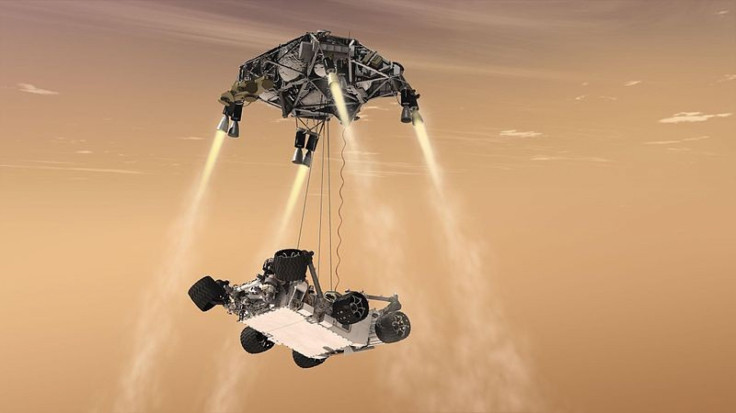No Methane, No Life On Mars? Curiosity Breathes Deep

NASA rover Curiosity has been inhaling deeply on the Martian surface, trying to get a whiff of any methane lurking in the Red Planet's atmosphere. This simple organic compound is strongly tied to biological processes – most notably, the digestive tracts of cows, which use anaerobic bacteria to break down cellulose. The bacteria produce methane that later exits out the cow's back end, lending a certain fragrancy to the animal's flatulence.
Scientists thought they had spotted methane on Mars before, with Earth-based telescopes that picked up seasonal hotspots of the gas. Methane is easily broken down by sunlight, so if the gas was confirmed by Curiosity's measurements to still be present in the Red Planet's atmosphere, that could be the signature of present-day extraterrestrial life.
Curiosity's spectacularly executed landing on the Martian surface in August kicked off its 23-month mission to study the planet, including seeking out traces of life, current or past. Scraping the planet's atmosphere is just one part of the mission, which also includes examining soil and rocks to ascertain how geological processes have shaped the planet's history and what sort of water may have once flowed on Mars.
Unfortunately, thus far Curiosity has sniffed deep and found nothing. The latest measurements from Curiosity's Sample Analysis at Mars have found that the planet's atmosphere is mostly carbon dioxide, with traces of oxygen, nitrogen and argon. No significant amount of methane.
However, a few negative results doesn't necessarily mean that the evidence book is completely closed for current life on Mars. If the gas does occur seasonally, Curiosity might be sniffing around at the wrong time.
“SAM will continue to search for methane, to determine if methane does vary with time,” NASA scientist Sushil Atreya said at a press briefing earlier in November. “So stay tuned; the story of methane has just begun.”
While the book is still open on present-day Martian life, the latest NASA findings support the possibility of life flourishing on Mars ages ago. Curiosity has found that Mars once had a much more substantial atmosphere, but lost it over millions of years. Ancient Mars may have had a much more carbon-dioxide rich atmosphere that would have warmed it, possibly creating life-nurturing conditions.
And who knows? Another sniff could clear Curiosity's sinuses and reveal a very different measurement.
"Maybe its understandable because it's a very early measurement and they're just really still learning the idiosyncrasies of the instrumentation," NASA planetary scientist Michael Mumma told Discovery News.
© Copyright IBTimes 2024. All rights reserved.





















